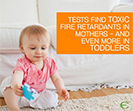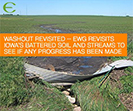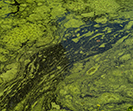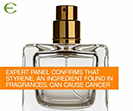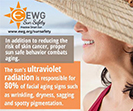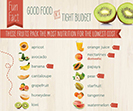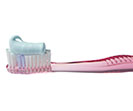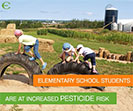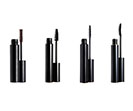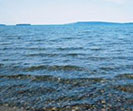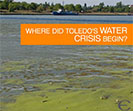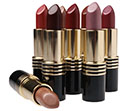August Highlights
NEW REPORT: EWG researchers teamed up with scientists at Duke University to test 22 mothers and 26 children for toxic fire retardants. The results were disturbing: The urine of every single mother and child tested yielded evidence of exposure to TDCIPP, a cancer-causing fire retardant. In the children, the average concentration of a chemical biomarker for TDCIPP was nearly five times the average in the mothers. In the most extreme case, a child had 23 times more than the mother. Read More
NEW REPORT: In a new report, "Washout Revisited," EWG found that Iowa's precious topsoil was still washing off crop fields, polluting water and threatening the sustainability of some of the most productive soils in the world. It showed that more frequent and intense rainstorms - a signal that climate is changing - are ravaging poorly protected fields across the Midwest, and conservation efforts are not keeping up. EWG's report and interactive map included before-and-after photo comparisons of soil and polluted runoff from farm fields. Read More
NEW REPORT: Nearly 500 American elementary schools are within 200 feet of farm fields that could be blanketed with massive amounts of a toxic defoliant linked to Parkinson's disease, non-Hodgkin's lymphoma and reproductive and immune system problems. That was the finding of an EWG analysis that showed that hundreds of thousands of children across the country would be at increased risk of exposure to the harmful chemical compound 2,4-D if the EPA approved the new weed killer Enlist Duo.
EWG's map found also 3,200 elementary schools within 1,000 feet of corn or soybean fields that could potentially be sprayed with Enlist Duo. Forty-seven states have at least one school within 1,000 feet of a field growing corn or soybeans - and 41 states have at least one school within 200 feet. Read More
NEW TIP: EWG recommended that people avoid cosmetics that contain microbeads and stick to those using natural exfoliants such as apricot seeds or cocoa nibs. This came after a study found nearly 3 million of the tiny plastic particles per square mile in parts of Lake Erie. Culprits include products such as Neutrogena Deep Clean face wash, which contains about 360,000 microbeads per tube. Microbeads, about the size of plankton and fish eggs, turn up in the digestive tracks of fish and other marine animals and act as tiny toxic sponges, soaking up chemical pollutants such as phthalates and PCBs. On July 8, 2014, Illinois became the first state to ban microbeads in consumer products. Read More






